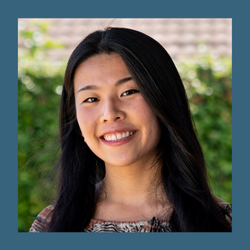Oct
13
2021
Written by Kitty Hu (Communications and Programs Assistant)
For many young people in K-20 classrooms today, 9/11 is a day frozen in time, but we must recognize it is part of a longer historical trajectory that continues to impact South Asian, Muslim, Arab, Afghan, Iraqi, and Sikh communities. This is one of the messages undergirding the Teaching Beyond September 11, a multimodal curriculum for high school and college educators created by the University of Pennsylvania Graduate School of Education (GSE) and their collaborators. Focusing on the years from 2001 to 2021, this curriculum includes 20 stand-alone modules with over 50 lessons on a variety of topics related to the events of September 11th and their aftermath. The modules cover topics such as democracy and rights, domestic policy, foreign policy, media and representation, public opinion/perception and anti-Muslim sentiment.
BMP partnered with the University of Pennsylvania to develop a segment focused on social justice and solidarity featuring the voices and experiences of four young activists whose lives have been altered by the aftermath of 9/11.
We interviewed Maryam Abdul-Kareem, a Black Muslim woman who grew up in Virginia; Ameer Abdul Rahman, a Palestinian American Muslim man who grew up in Colorado; Harleen Kaur, a Sikh American woman who grew up in the Midwest; and Nour Vakhshoury, an Iranian American woman who grew up in Southern California; to learn how their communities changed after 9/11, how they developed their own activism, and how the Muslim and African ban and anti-Black racism galvanized them to practice solidarity. In the video below, we meet the four young activists and hear how their identities, families and communities were affected by the backlash after 9/11.
In the following video, we hear about the short and long term impact of the Muslim and African Ban’s passage in 2017, as well as how communities were directly affected.
In the final video, we delve into the four activists’ work for solidarity and justice for those most marginalized by Islamophobia, racism, and white supremacy.
In addition, we prepared teaching plans for educators to extend learning inside and beyond the classroom. The lesson plans utilize videos, texts, and images to engage students in discussion to understand the diversity and complexity of Arab, Middle Eastern, Muslim, South Asian (AMEMSA) communities, the issues that affect them, and the avenues for action and solidarity.
Marking the 20th anniversary of September 11 includes developing more inclusive narratives about its impact on various communities in the US and around the world. We hope that educators, school administrators, student groups and families will use these resources for discussion and action.
Resources:
- Watch all of the Teaching Beyond 9/11 videos
- Access the Solidarity and Social Justice lesson plan
- Sign up to receive updates and lesson plans from the University of Pennsylvania

